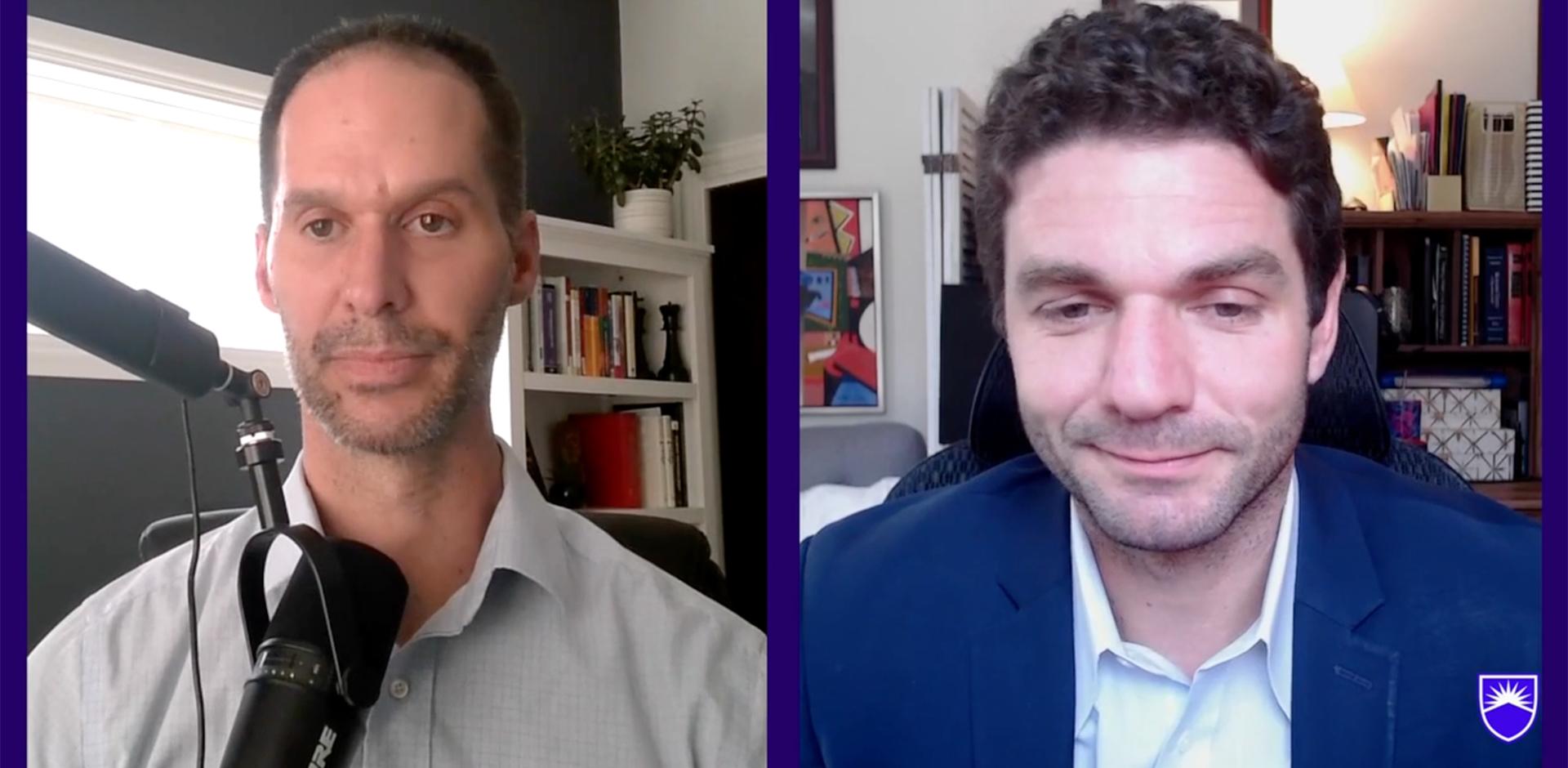Navigating Retirement Income Planning in Volatile Markets
How retirement planning professionals can steer clients through turbulent market moments.
Author

PhD, CFP®, RICP®
Subscribe to Newsletter
Related Posts
Social Security at Every Life Stage
View DetailsAddressing Social Security Myths
View DetailsTPCP One Year Anniversary
View DetailsApril 30, 2025
As financial markets deal with their most turbulent era since the COVID-19 pandemic, many clients may be worried about their retirement income plan — but advisors can help.

In a recent conversation, Retirement Income Certified Professional® (RICP®) Program Director Eric Ludwig, PhD, CFP® and Jamie Hopkins, Esq., LLM, CFP®, ChFC®, CLU®, RICP®, CEO of Bryn Mawr Capital Management, discuss how retirement advisors can speak with clients about the current market moment and keep their retirement income planning on track.
Behavioral Finance and Market Risk
A large part of a financial professional’s job in volatile market times, according to Ludwig and Hopkins, is counseling clients against making any hasty decisions. While simply “staying the course” may be the conventional wisdom, Hopkins points out this approach may not work for all clients — especially those very near to or already in retirement.
Hopkins emphasizes that a retirement advisor must consider each client on an individual basis and offer them options, while also recognizing that some clients may only be coming to them for confirmation of their own beliefs. The important part, he says, is encouraging them to consider the solutions they think could be best — otherwise, clients may feel that their advisor simply threw out lists of options they don’t understand while not providing them any real value or guidance. He adds working with clients to adapt their spending in retirement to suit market risk, and setting that expectation early in or before retirement — rather than simply sticking to a set withdrawal rate — has beneficial effects on outcomes proven by research.
Tailoring Strategy for Volatile Markets
Ludwig and Hopkins also talk about the history of volatile market situations, including the COVID-19 pandemic and the 2008 financial crisis, and the lessons that can be drawn from those times for today’s situation. They point out that while certain retirement income solutions may not be the strongest mathematical choices for a client from the retirement advisor’s point of view, they may be the best for an individual client’s needs and goals.
The two also touch on the notion that there may be opportunities in times of market volatility to encourage clients to buy into the market at a low in anticipation of future growth — though this greatly depends on each client’s resources. In particular, Hopkins points out well-trodden retirement income planning simulations like Monte Carlos are just projections and don’t account for the true unpredictability of market fluctuations. He also says that selling certain assets at a high is not always a bad thing, though it may take a lot to convince clients to go this route.
Ludwig agrees that it’s important for retirement advisors to consider individual assets rather than just the big picture when it comes to volatile market conditions.
More From The College
- Explore the RICP® Program
- Visit the American College Center for Retirement Income
- Help Your Clients Understand Retirement Planning with The Retirement Course™
Related Posts
Social Security at Every Life Stage
View DetailsAddressing Social Security Myths
View DetailsTPCP One Year Anniversary
View Details